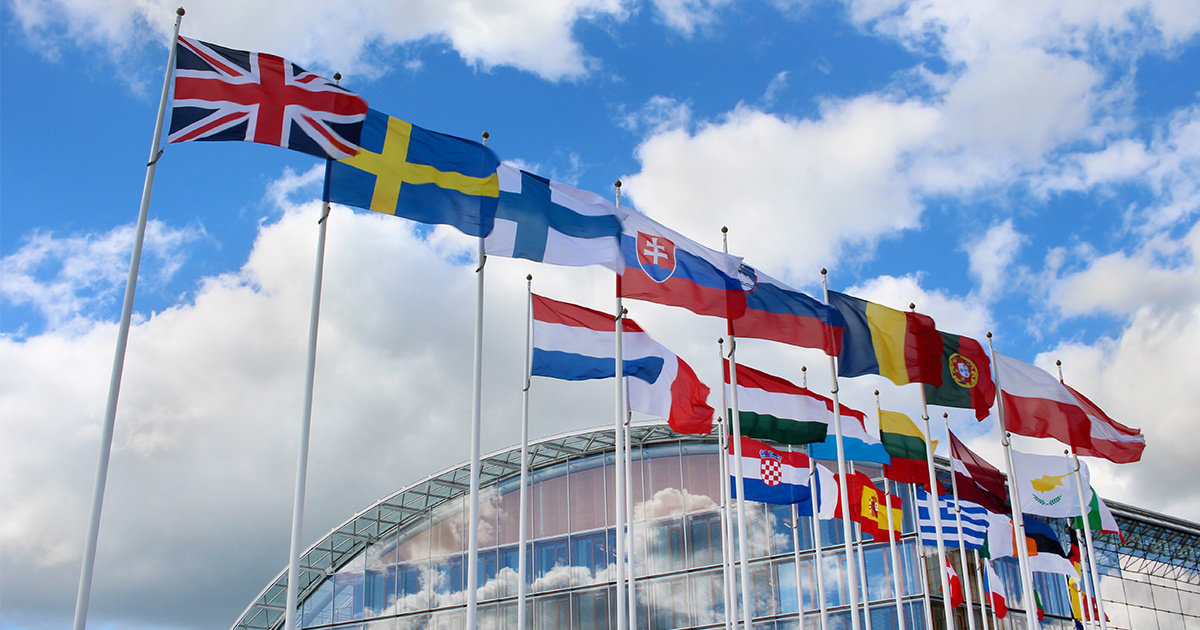

ziss / iStock / Getty Images Plus
The European Union, responsible for almost 10 percent of the world’s greenhouse gas emissions, failed to agree Thursday on a date for achieving carbon neutrality, The New York Times reported.
Some European leaders had hoped to forge an agreement to reach net zero emissions by 2050 during a meeting in Brussels to set the agenda for the next five years of the European Parliament’s term. But at least three Eastern European countries blocked the deadline, which was reduced to a footnote reading, “For a large majority of member states, climate neutrality must be achieved by 2050,” as The Guardian reported.
“The EU can and must lead the way, by engaging in an in-depth transformation of its own economy and society to achieve climate neutrality. This will have to be conducted in a way that takes account of national circumstances and is socially just,” the final text of the strategic agenda read.
🇪🇺 EU leaders agreed on a Strategic agenda for the next five years:
➡️ to protect citizens & freedoms
➡️ to develop a strong and vibrant economic base
➡️ to build a green, fair & social Europe
➡️ to promote EU values in the world
Read more: https://t.co/xJ3YnGC1x6 pic.twitter.com/8aQZOTOnmA— EU Council (@EUCouncil) June 20, 2019
Western European leaders German Chancellor Angela Merkel and French President Emmanuel Macron had wanted the bloc to agree to an ambitious target ahead of a major UN climate summit in September. But leaders of Poland, the Czech Republic and Hungary refused to sign any document with a 2050 date. It was also unclear if Estonia would have committed to the deadline, the EU Observer reported. Poland gets around 80 percent of its electricity from coal, The New York Times reported, and the countries were concerned such a timeline would disproportionately impact their economies.
The news was a disappointment to environmental activists, who already thought the 2050 deadline was too vague, according to The Guardian.
“Hollow words can’t rebuild a house flattened in a mudslide or repay a farmer who’s lost their harvest to drought. Merkel and Macron failed to convince Poland and bring others on board,” Greenpeace EU climate policy adviser Sebastian Mang said in a statement. “With people on the streets demanding action and warnings from scientists that the window to respond is closing fast, our governments had a chance to lead from the front and put Europe on a rapid path to full decarbonisation. They blew it.”
European leaders blow the chance to agree #ClimateNeutralEU at #EUCO meeting
They must call an emergency EU climate summit before a crucial UN meeting in September to tackle #ClimateBreakdown 🔥🌍🔥https://t.co/wznDmPp9aU
— Greenpeace EU (@GreenpeaceEU) June 20, 2019
The decision comes amidst increasingly urgent warnings from scientists about the need to act on the climate crisis, and a growing popular movement demanding that politicians listen. A 2018 report from the Intergovernmental Panel on Climate Change (IPCC) found that we now have 11 years to reduce emissions to 45 percent of 2010 levels in order to keep global temperatures from rising past 1.5 degrees Celsius above pre-industrial levels. School strikes, inspired by Swedish teenager Greta Thunberg, have spread to cities across Europe and around the globe, and Extinction Rebellion protests blocked traffic in central London for a week in April.
These movements were reflected in the outcome of the EU elections, in which green parties did well enough to emerge as potential tie-breakers in the European Parliament. But the green wave did not extend to Central and Eastern Europe.
However, a large number of EU member states do support a 2050 carbon neutrality target. The UK has promised to meet it on its own, Sweden has set an earlier date of 2045 and Finland has announced an even more ambitious goal of 2035, according to the EU Observer.
European Council president Donald Tusk told reporters that a different decision could be possible from the entire bloc even within months, the EU Observer reported. An anonymous diplomat agreed.
“It’s not a matter of if the EU commits to climate neutrality, it’s when,” the diplomat said, according to The Guardian.
Europe has currently committed to reducing emissions 40 percent by 2030, CNN reported.
- Carbon Capture: What We Don't Talk About When We Talk About ...
- UK Could Become 'Net Zero by 2050' Using Negative Emissions ...

 233k
233k  41k
41k  Subscribe
Subscribe 